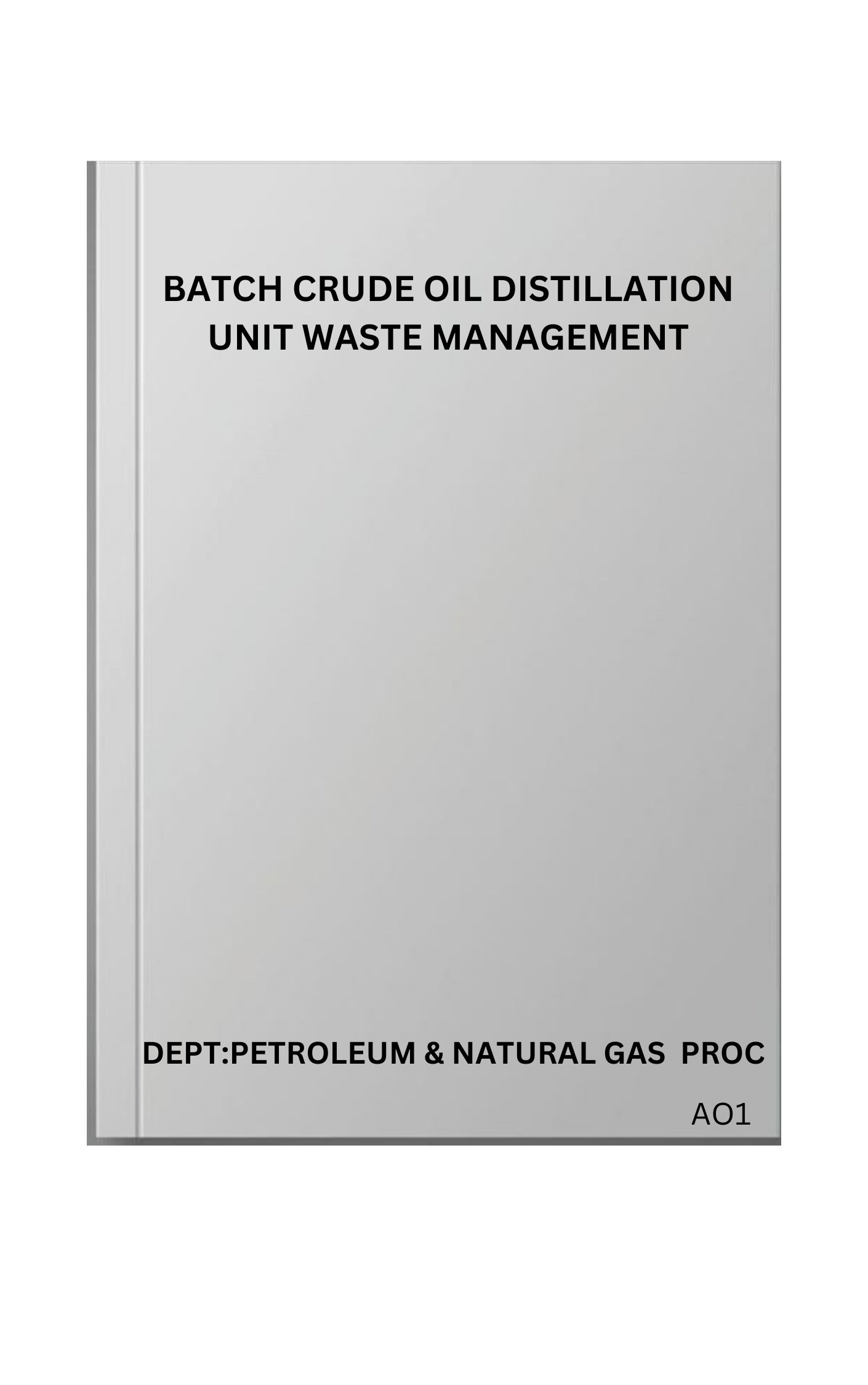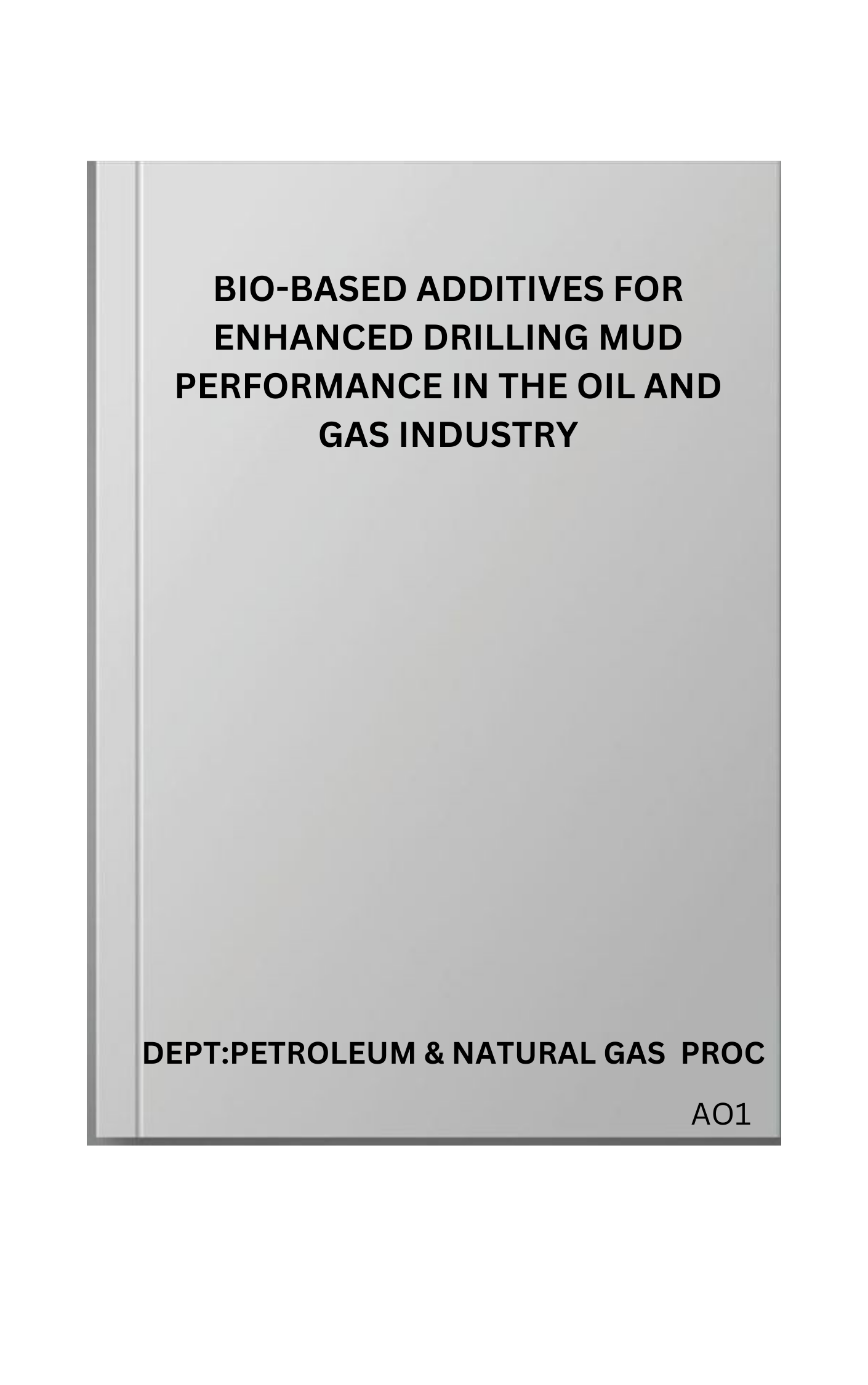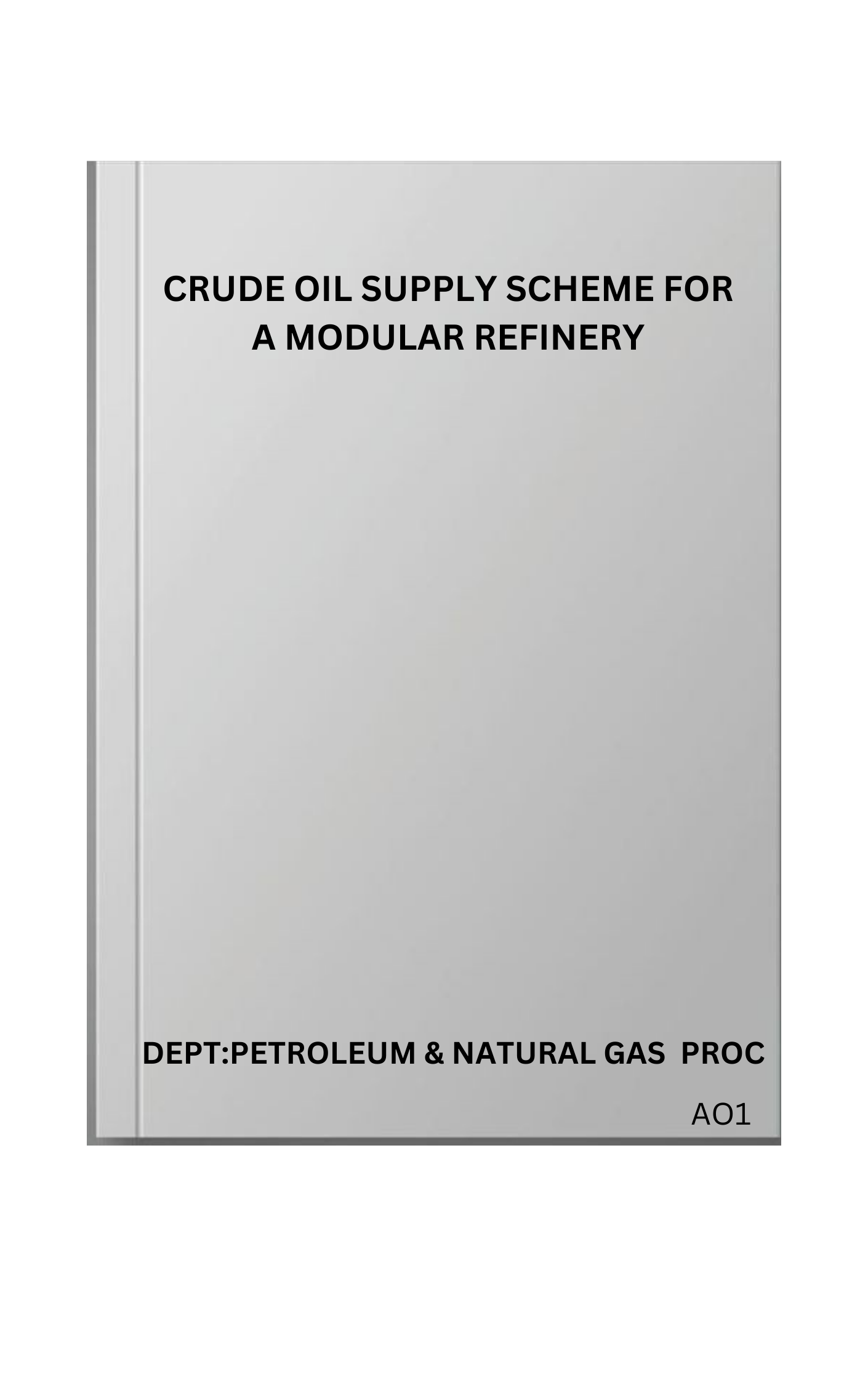
Get Full Access
Immediate download available after access is granted.
Get Material NowBATCH CRUDE OIL DISTILLATION UNIT WASTE MANAGEMENT
Abstract / Description
Abstract
Waste management in batch crude oil distillation units is crucial for minimizing environmental pollution and ensuring regulatory compliance. This study examines wastewater generation in batch crude oil distillation processes and explores effective treatment and disposal methods to mitigate environmental impact.
The research identifies key sources of wastewater, including condenser cooling water, wash water from equipment cleaning, and effluents containing hydrocarbons, suspended solids, and dissolved salts. Various treatment techniques such as oil-water separation, coagulation-flocculation, biological treatment, and advanced membrane filtration are analyzed to determine their efficiency in removing contaminants.
Findings suggest that effective wastewater treatment not only reduces environmental hazards but also allows for water reuse, improving the overall sustainability of refinery operations. Additionally, integrating zero-liquid discharge (ZLD) technologies and adopting eco-friendly treatment chemicals enhance waste management efficiency.
In conclusion, this study highlights the importance of proper wastewater management in batch crude oil distillation units. It recommends implementing a combination of physical, chemical, and biological treatment processes, along with regular monitoring and compliance with environmental regulations to ensure sustainable waste disposal practices.
Overview
CHAPTER ONE
INTRODUCTION
1.1 Background of the Study
The refining of crude oil is a crucial process in the petroleum industry, serving to separate crude oil into its various components such as gasoline, diesel, kerosene, and other valuable products. A batch crude oil distillation unit (BCODU) is one method employed in refining, where crude oil is distilled in discrete batches rather than in a continuous flow process. While batch crude oil distillation unit (BCODU) offer flexibility and adaptability in operations, they also generate substantial waste by-products, particularly in the form of wastewater. This wastewater, often laden with toxic substances such as hydrocarbons, phenols, sulfides, and heavy metals, poses significant environmental and health risks if not properly managed (Hussein, Khaled & Maha, 2018).
The management of wastewater from batch crude oil distillation unit (BCODU) has become an increasing concern due to the potential for severe environmental degradation. When untreated wastewater is released into the environment, it can contaminate water bodies, affect aquatic life, and degrade ecosystems. Furthermore, the disposal of untreated or inadequately treated wastewater can violate environmental regulations, leading to legal consequences for refineries and damaging their reputations (Owhonka, Egbono & Buduka, 2023). Therefore, developing effective wastewater treatment and management strategies is vital to ensure the sustainability of crude oil refining activities and to minimize their environmental impact. Recent advancements in wastewater treatment technologies, such as membrane filtration, chemical precipitation, and biological treatments, have improved the capacity of refineries to manage wastewater. However, the application of these technologies to batch distillation units still faces challenges, particularly in terms of cost, operational complexity, and effectiveness in removing contaminants. There is a growing need for refineries to adopt innovative and cost-effective wastewater management strategies to comply with environmental regulations and reduce pollution (Okereke & Ogidi, 2018).
In Nigeria, where the petroleum industry plays a critical role in the economy, efficient waste management in crude oil distillation processes is essential for balancing industrial development with environmental protection. Given the importance of crude oil to the country's economic growth, addressing the challenges of wastewater management in BCODUs is crucial for achieving sustainable refinery operations (Ephraim, 2020). This study seeks to explore these challenges and propose sustainable solutions for managing wastewater in BCODUs to ensure environmental compliance and long-term industry sustainability.
1.2Statement of Problem
The petroleum industry, particularly crude oil refining, generates significant amounts of wastewater that contain harmful pollutants. Current waste management practices for wastewater in batch crude oil distillation units (BCODUs) are often inadequate, leading to environmental pollution and non-compliance with regulatory standards. The lack of efficient and cost-effective treatment methods for the removal of contaminants, such as heavy metals and hydrocarbons, exacerbates the problem. As a result, water bodies surrounding refineries are at risk of contamination, which can adversely affect aquatic ecosystems and public health (Ali, Mohammed & Sayed, 2023). Despite the importance of refining to the economy, insufficient attention has been given to developing sustainable wastewater management systems for batch crude oil distillation unit (BCODU). Many existing systems either fail to treat wastewater to acceptable environmental standards or are too costly and complex to implement on a large scale. This study seeks to address this gap by exploring effective wastewater management solutions tailored to batch crude oil distillation unit (BCODU) that can mitigate environmental impacts and ensure regulatory compliance.
1.3 Aim of the Study
The aim of this study is to investigate batch crude oil distillation unit waste management (wastewater)
PAY TO GET COMPLETE PROJECT

